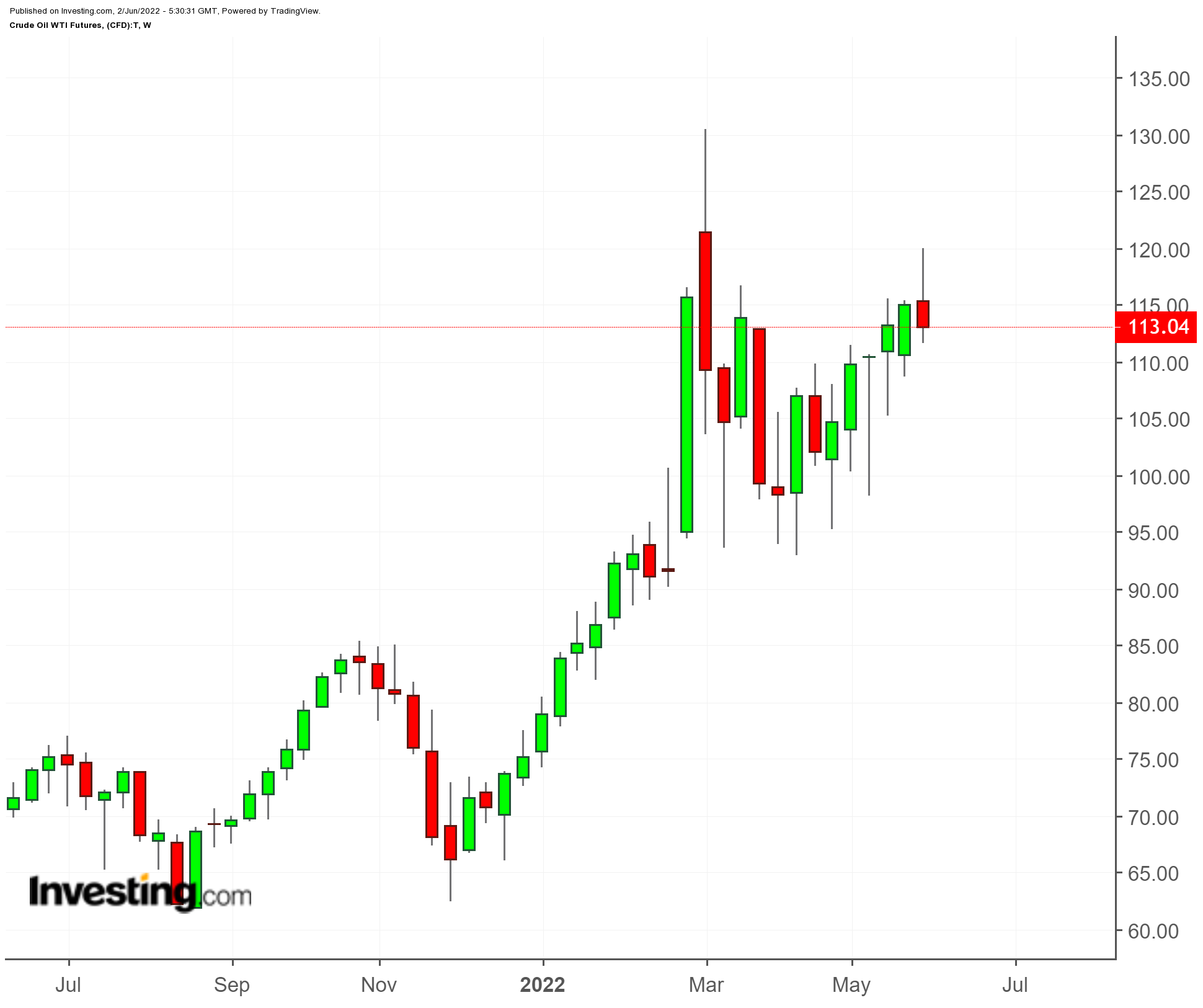Oracle releases AI Database 26ai with built-in artificial intelligence
The big news for oil markets this week is that the European Union agreed to a partial ban on Russian oil. Oil prices rose in response to the announcement—though they've since moved a bit lower—but the actual terms of the agreement will be more important for oil traders and the oil market in the long run.

Here are some of the key details of what some are calling the EU phased ban agreement:
- EU countries will cease maritime crude oil imports from Russia in the next 6 months.
- Maritime imports of refined petroleum products from Russia will halt in the next 8 months.
- Oil transported via the Druzhba pipeline to EU member states will continue to flow to Hungary, the Czech Republic, and Slovakia. Germany and Poland say they will stop buying Russian oil via the pipeline by the end of 2022.
- The banning of insurance on Russian tankers transporting oil is under consideration, which could impact Russian oil exports to non-EU nations, but this has not been decided yet.
According to some experts, the sanctions agreement should cut off 75% of Russia’s oil exports to Europe immediately, rising to 90% by the end of the year.
To get a sense of how much crude oil will be impacted, in 2021, the EU imported about 2.2 million bpd of Russian oil. A quarter of the EU’s crude oil consumption came from Russia.
Based on data from TankerTrackers.com, Russia has already been able to reroute to Asia—specifically to China and India—a significant amount of the oil that was previously being exported to Europe.
The Russian Federation is likely selling this oil at a discount to refineries there, but because oil prices are so high now, Russia is still making a significant amount of money.
It seems unlikely that 1.65 million barrels of Russian oil will come off the market. If it is not exported to Europe, it will probably go to Asian buyers instead.
Shortage on the Horizon?
Traders should pay attention to how European countries replace these missing barrels due to the partial ban. Will Europe be able to find oil from other sources or will it face an oil shortage if refineries cannot find supply at prices they are able to afford?
OPEC+ is meeting on Thursday, June 2. The cartel is very likely to approve its planned minor increase in production quotas. According to a Wall Street Journal article, OPEC+ is considering exempting Russia from the production deal entirely.
This would place Russia in a category with Venezuela, Iran, and Libya. It is unclear whether Russia is interested in being exempted, but it seems that the option is being raised because it would keep them involved in the OPEC+ organization regardless of what happens to its production as a result of sanctions.
It appears that other OPEC+ members are concerned about giving Russia that leeway. (Russian oil production is actually increasing at the moment, though Russia has so far remained within the OPEC+ quota).
If sanctions and import bans against Russia actually worked, it would mean that Russian oil was off the market. This would mean a decrease in global supply and higher oil prices.
The market has responded to that theory several times this year, and it is part of the reason oil prices have reached triple digits. However, the truth is that economic sanctions or bans on Russian oil actually compel Russia to sell to others (mostly China and India) at some discount, thus lowering competitive prices.
Ultimately, the markets respond to perception, and prices will stay high as long as the perception indicates higher prices.
